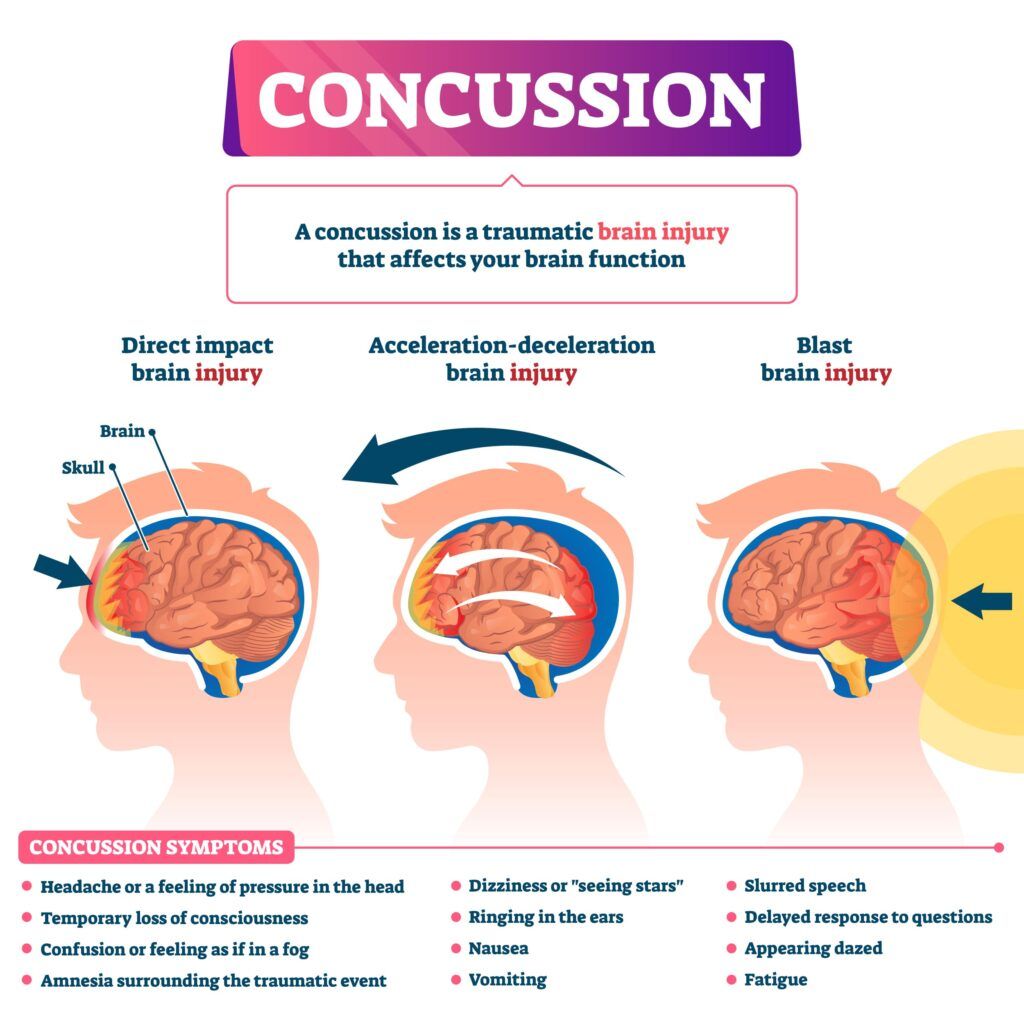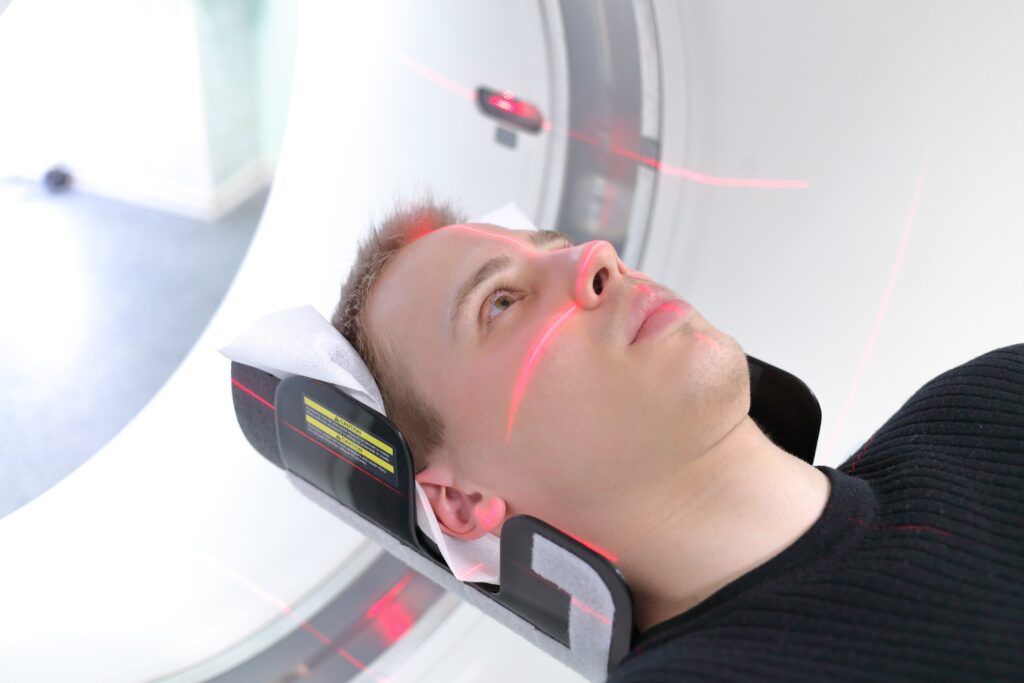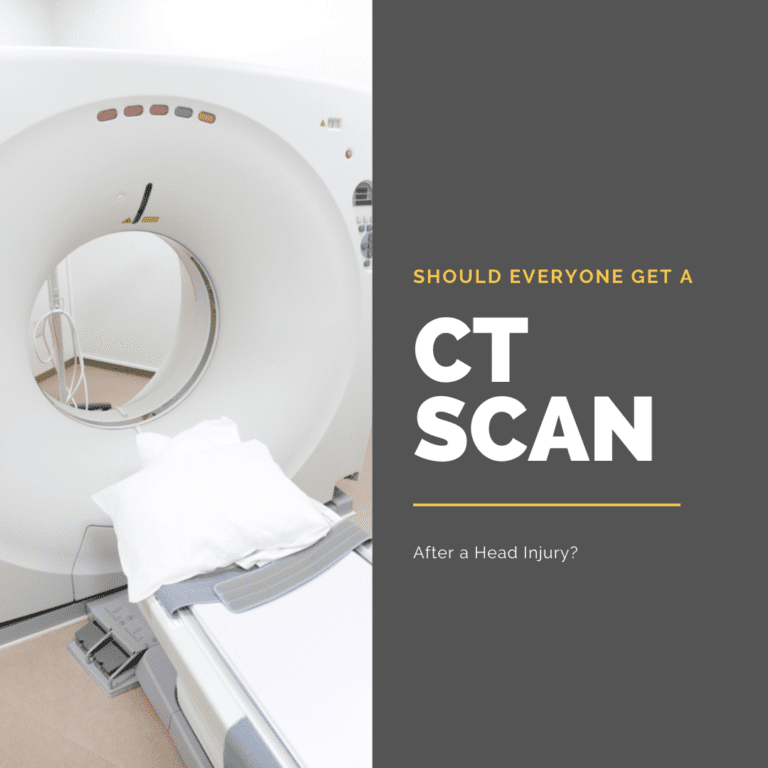We’ve all bumped our heads at some point. Most of the time, it’s not a big deal and we don’t even need to see a doctor. But sometimes, a head injury can be more serious. In these cases, diagnostic imaging techniques, such as a head CT scan, may be performed to assess the damage. The big question then becomes: should everyone get a CT scan after a head injury? In this blog, we will explore the different types of head injuries, their symptoms, and some guidelines on whether or not a CT scan is needed in order to help you answer that question for yourself.
What is a head injury?
When determining if a CT scan is necessary, we must first understand the definition of a head injury. In the simplest terms, a head injury can be defined as any sort of bump, bruise, cut, fracture, or other type of injury affecting the brain, skull, or scalp.
There are two main types of head injuries: closed and open. A closed head injury occurs when the skull is not broken, while an open head injury occurs when the skull is fractured. Closed head injuries are much more common than open head injuries.

The most common cause of a closed head injury is a blow to the head, such as from a fall or car accident. This type of injury can result in a concussion, which is a type of mild brain injury. It occurs when the head is hit or shaken, which can cause the brain to move around inside the skull. This can lead to bruising and bleeding of the brain tissue. Concussions can also damage nerve cells in the brain. However, it is important to note that not all head injuries result in a concussion. Symptoms of a concussion include:
- headache
- nausea
- vomiting
- dizziness
- blurry vision
- light sensitivity
- noise sensitivity
- balance problems
- fatigue or drowsiness
- trouble concentrating or remembering things
Although concussions are one of the most common types of head injuries, there are also other types of head injuries known as:
Diffuse Axonal Injury:
This is a type of brain injury that occurs when the head is shaken violently, such as in a car accident. This can cause the brain to move around inside the skull and lead to swelling of the brain tissue and damage to the brain cells.
Edema:
This is when the brain swells from the injury and presses against the skull
Hematoma:
A hematoma is a collection of blood that pools outside of the blood vessels. A hematoma can occur when there is an injury to the scalp, such as from a fall or car accident. This type of head injury can cause swelling and bruising on the scalp or in the brain.
Hemorrhage:
A hemorrhage is a type of bleeding. An intracerebral hemorrhage occurs when there is bleeding within the brain tissue and a subarachnoid hemorrhage occurs when there is bleeding around the brain.
Skull fracture:
A skull fracture occurs when one or more bones in the skull are broken. A skull fracture means that damage to the brain is more likely.
Is a CT Scan Needed?
When it comes to head injuries, it is always recommended to seek medical care if you are experiencing one or more of the aforementioned concussion symptoms. In addition to indicating a concussion, these symptoms can also indicate another type of brain injury. It is especially important to seek emergency care right away if you lose consciousness or if you experience confusion or disorientation. By seeking medical attention, your doctor will be able to assess the severity of your head injury and determine if a CT scan is needed.
CT, or computed tomography, scans are a type of x-ray that produces detailed images of the inside of the body. A CT scan is often used to diagnose head injuries because it can show the extent of any damage to the brain. By looking at a CT scan image, doctors can identify any evidence of bleeding, swelling, or skull fractures.
In general, a CT scan is not needed for most people with a concussion or other types of mild brain injuries. This is because mild brain injuries, such as concussions, do not show up on a CT scan and can generally be treated without any significant risks. Not to mention that CT scans do use radiation, so they are only recommended when absolutely necessary.

However, there are some exceptions. For example, if the person has any of the following signs, then a CT scan is usually performed to rule out a more serious brain injury:
- trouble speaking, hearing, or swallowing
- seizures
- vision problems
- weakness on one side of the face or body
- prolonged loss of consciousness
- mismatched pupil sizes
- skull tenderness
- severe vomiting and/or headache
- fluid coming from the ear or nose
Additionally, people who are at a higher risk for skull fractures or bleeding may also require a CT scan. This includes individuals who are on blood thinners.
If you or someone you know has suffered a head injury, the best thing to do is to seek medical attention right away. While most cases of mild traumatic brain injuries, such as concussions, do not need a CT scan, it is still recommended to have that decision made by a medical professional.
In Conclusion
In this blog, we have defined types of head injuries in order to help answer the question: should everyone get a CT scan after a head injury? The answer is, it depends. If you are experiencing any of the concussion symptoms, then it is highly recommended to seek medical attention right away so that your doctor can help you decide whether a CT scan is necessary. In most cases a CT scan is not necessary for people with concussions and is usually only required for more severe head injuries. However, there may be some exceptions depending on the individual’s symptoms and risk factors, which is why it is important to seek medical attention after experiencing a head injury. It is always better to be safe rather than sorry! We hope this blog was helpful in clarifying when a CT scan is necessary after a head injury.

Dr. Kashouty, a diplomate of the American Board of Psychiatry and Neurology (ABPN), practices general neurology with fellowship trained specialization in clinical neurophysiology. Dr. Kashouty finds the form and function of the nerves and muscles the most interesting part of neurology, which is what led him to specialize in neurophysiology with more emphasis on neuromuscular conditions. He treats all neurological diseases, but his main focus is to treat and manage headaches, movement disorders and neuromuscular diseases.




